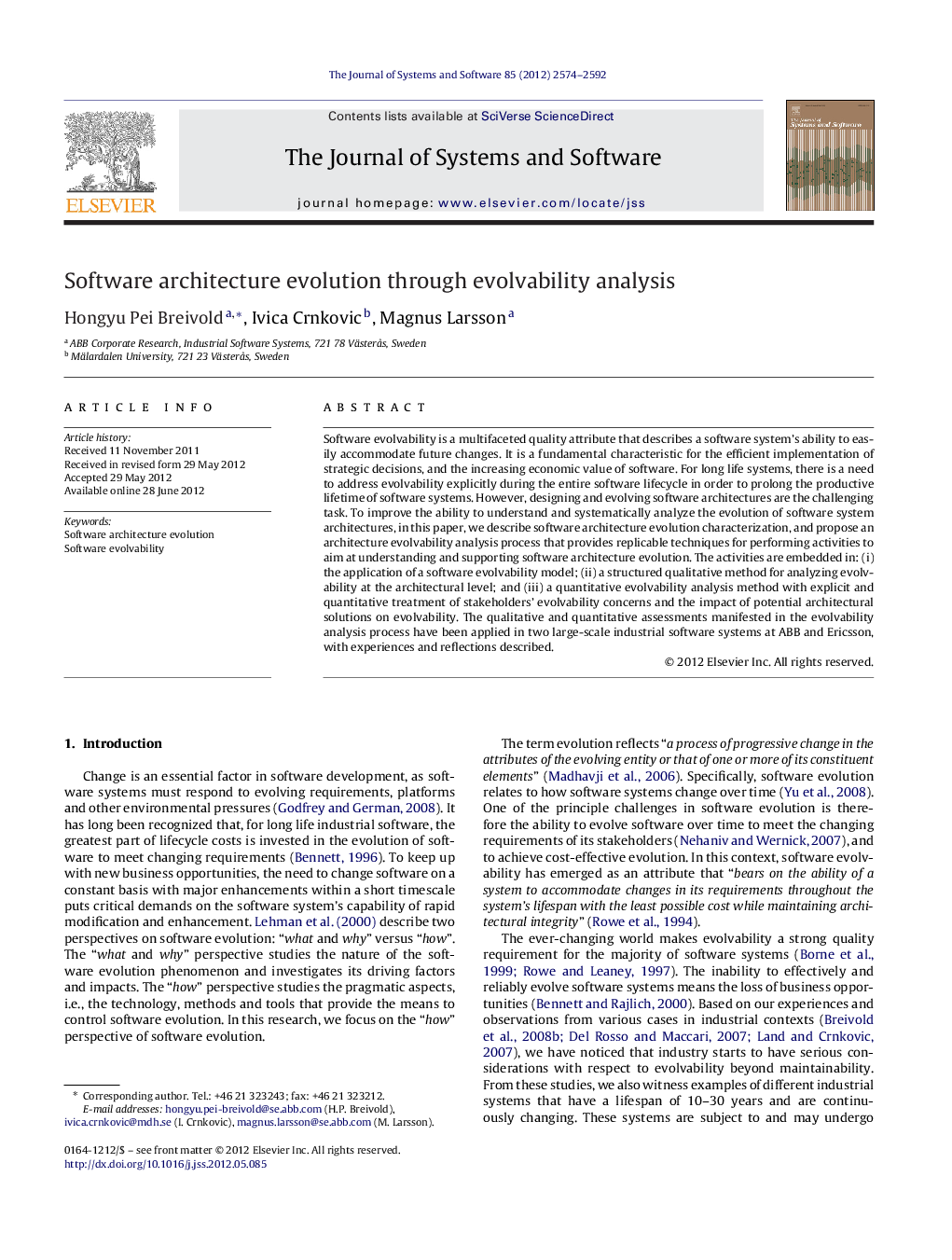| Article ID | Journal | Published Year | Pages | File Type |
|---|---|---|---|---|
| 461752 | Journal of Systems and Software | 2012 | 19 Pages |
Software evolvability is a multifaceted quality attribute that describes a software system's ability to easily accommodate future changes. It is a fundamental characteristic for the efficient implementation of strategic decisions, and the increasing economic value of software. For long life systems, there is a need to address evolvability explicitly during the entire software lifecycle in order to prolong the productive lifetime of software systems. However, designing and evolving software architectures are the challenging task. To improve the ability to understand and systematically analyze the evolution of software system architectures, in this paper, we describe software architecture evolution characterization, and propose an architecture evolvability analysis process that provides replicable techniques for performing activities to aim at understanding and supporting software architecture evolution. The activities are embedded in: (i) the application of a software evolvability model; (ii) a structured qualitative method for analyzing evolvability at the architectural level; and (iii) a quantitative evolvability analysis method with explicit and quantitative treatment of stakeholders’ evolvability concerns and the impact of potential architectural solutions on evolvability. The qualitative and quantitative assessments manifested in the evolvability analysis process have been applied in two large-scale industrial software systems at ABB and Ericsson, with experiences and reflections described.
► We identify software characteristics of evolvable software systems. ► We assess evolvability in a systematic manner. ► We defined the software architecture evolvability analysis process (AREA). ► We validated with large-scale industrial software systems at ABB and Ericsson.
